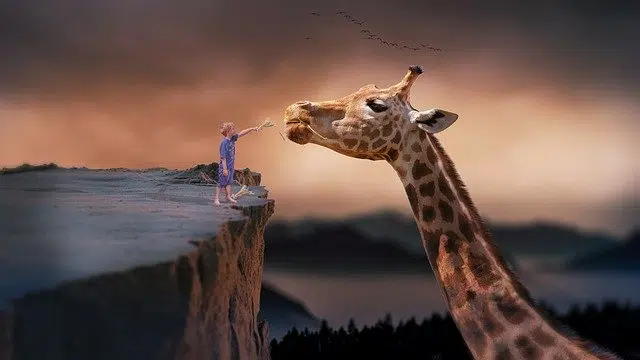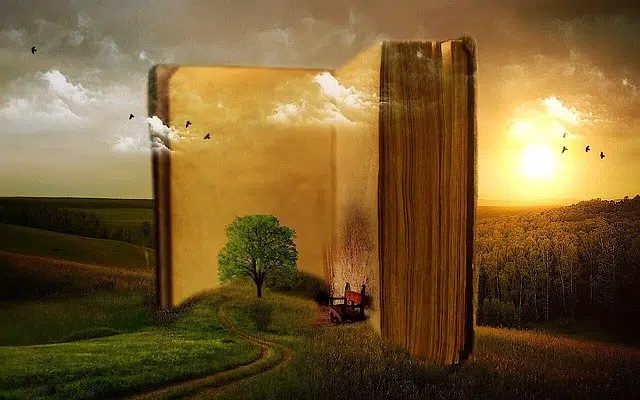
Fantasy is considered a human faculty.
From the Latin phantasia (which, in turn, comes from a Greek word), fantasy is the human faculty that allows us to reproduce, through mental images, past things or represent events that do not belong to the realm of reality. These events can be possible (for example, fantasizing about traveling to the beach next summer) or unrealizable (walking among dinosaurs or talking to a dog).
Fantasy can also be understood as the highest degree of imagination or ingenious thinking . These thoughts can be captured in artistic works, such as stories , novels or films .
Fantasy as a literary genre
In literature, texts are classified by genre , where each one includes those works with similar characteristics. This allows a clear ordering of the stories that allows them to be easily found by readers, according to their own interests.
Within the various classifications that fiction literature receives, there is a genre known as fantasy and in which are contained those works that tell stories that cannot occur in a real context , which ignore the laws of nature. and that seeks to take the reader to imaginary worlds to make them reflect, many times, on their own but from abstract elements.

As a literary genre, fantasy involves the inclusion of elements that do not belong to the realm of reality in a work.
Features and examples
The fantasy genre is one that presents imaginary and supernatural elements in its plot . It is a story that violates the rules of reality, with talking animals, monsters, immortal people and beings that travel through time.
Within this classification, novels such as "The Hobbit" or "The Neverending Story" could be located; But it is necessary to clarify that it is even an extremely complete genre because within it we can also find more warlike novels and others oriented to the mere flight of the imagination.
In this way, science fiction , also known as anticipation literature, is a genre that arises from the combination of fantasy (that which does not exist in reality) and science . It poses situations that have not yet happened (therefore, are unreal), but that could happen thanks to the advancement of scientific knowledge.
For their part, those works that combine elements of chivalric books or pastoral novels with fantastic elements are considered Epic Fantasy , among which we can mention "The Iliad" and "The Odyssey"; For many scholars, Don Quixote could even be included in this classification, although in my opinion it is a much more complex work that cannot be classified in any genre since it has a little bit of everything.
Authors and fantasy
The creation of a work of this style is extremely difficult because the writer has to be credible at all times, he must analyze every vague corner of the world and understand how it affects the story; That is, it has to get the reader to draw that world in their head and feel identified with what happens in it.
To achieve this, it is necessary that the author first creates the story and understands what the objective of telling it is and, from there, that he captures this entire Fantastic Universe in the clearest way possible , so that all readers can understand it. in the same world and the reading is satisfactory for everyone.
The concept in sexuality and cinema
The concept of fantasy can be associated with that of sexual play . A sexual fantasy is what a person would like to achieve when having sex.
Fantasia , finally, is an animated film directed by James Algar and Samuel Armstrong that was released in 1940 . The film transcended thanks to its music , performed by the Philadelphia Orchestra under the direction of Leopold Stokowski .
